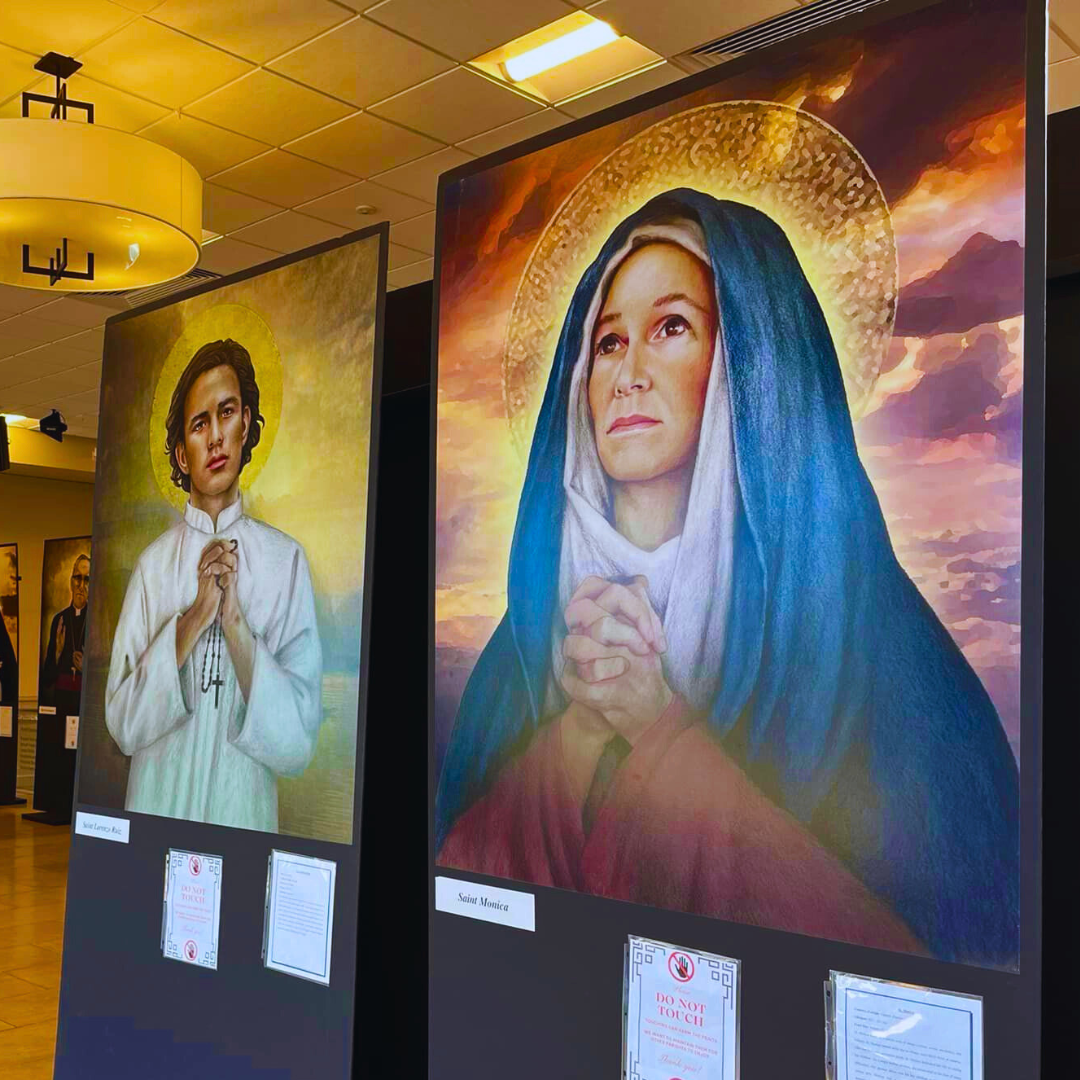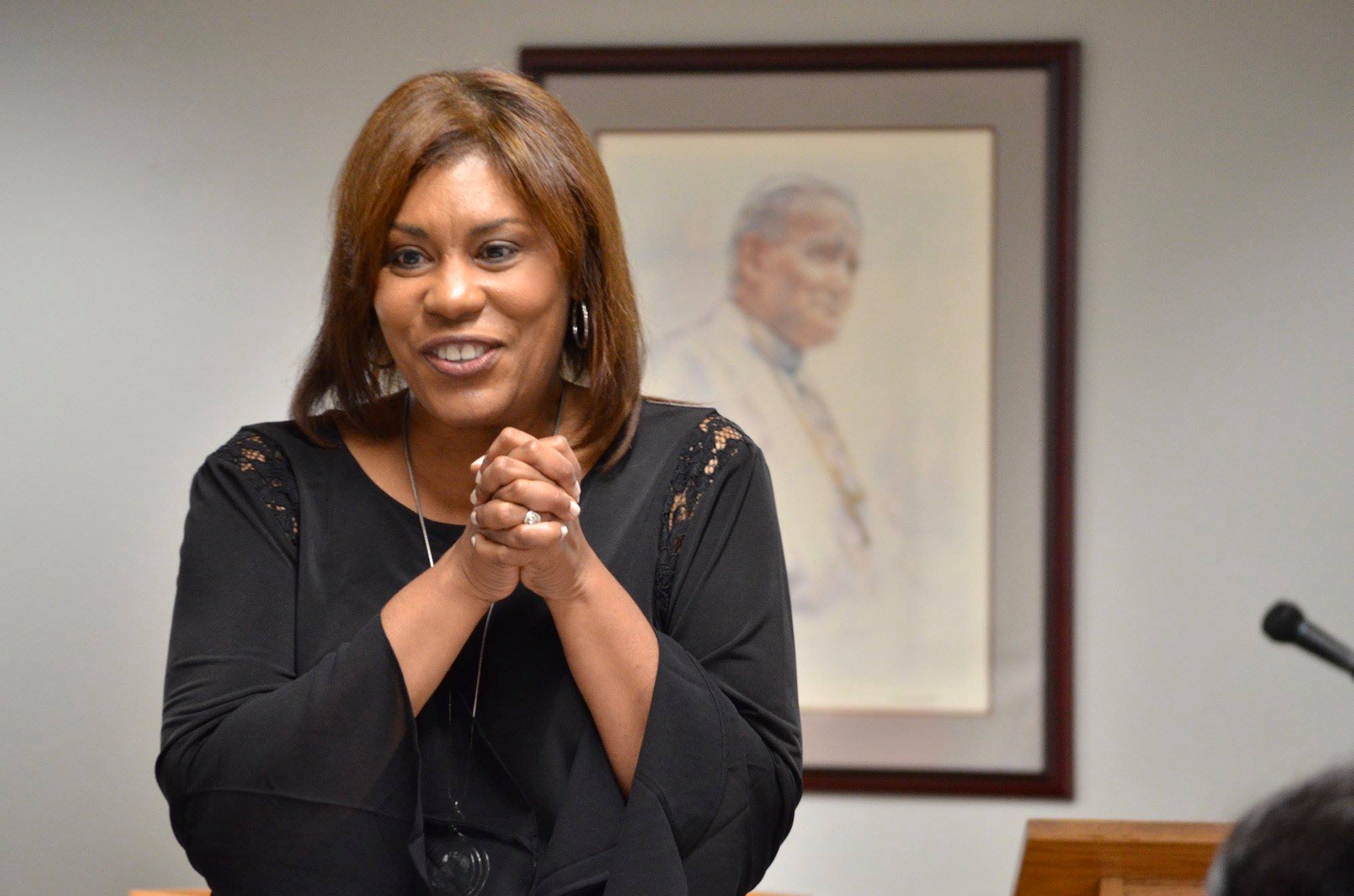
Sherry Hayes-Peirce considers ways she can serve her parish, through work, advocacy, and prayer for change.
The 6th-century Greek philosopher Heraclitus of Ephesus said, “The only constant in life is change.” It is a non-negotiable fact of life. I love many sports, but basketball tops the list, and one of its most outspoken commentators Charles Barkley says often, “Father Time is undefeated.”
Both of these quotes underscore that we are not in control of our lives, no matter how hard we fight the changes in our world and the inevitability that we will die. Both are in God’s hands. When the pandemic happened, it caused all of us to accept that we were out of control of many things that we assumed we’d never lose control of. It also caused us to think about how we could do things differently. As a person who accepts and thrives with change in my life, living during the pandemic was a time of innovation for me.
For some it was like sitting in an emergency room during a crisis waiting for the diagnosis, treatment and discharge papers to get back to “normal.” Others experienced an epiphany in the midst of the crisis and no longer wish to return to the former way of life.
In the past few weeks, I have been talking to a lot of people about “change” in our Church, from liturgical things to administrative roles. Last summer I took a course at LMU to learn more about the evolution of liturgy pre- and post-Vatican II. We read many of our Church documents that outlined the who, what, why, where, and how we changed. It was very enlightening to me to learn that Saint Charles Borromeo was the architect behind designing the elements that must be in every Catholic church. Some traditions are unique to particular cultures, not canonical edicts.

One of the biggest changes is the number of Catholics choosing the vocation of Holy Orders. There are many debates about why the numbers have plummeted, but the single most impactful reason comes down to what Venerable Fr. Patrick Peyton said: “The family that prays together stays together.” Many mothers prayed daily for one or more of her children to hear the call of God to the priesthood or religious life. Today, most families pray for their children to seek the vocation of marriage and professional career path.
In the month of August, several feast days inspire us to pray for vocations. August 4 is the feast of Saint John Vianney, patron for the priesthood. On August 8, the Church celebrates Saint Mary MacKillop, who founded theSisters of Saint Joseph of the Sacred Heart. August 23 is the feast of St. Rose of Lima, patron for those ridiculed for piety. August 27 is the feast of Saint Monica, a model for mothers who pray for their sons to join the Church. August 28 is the feast of Monica's son, Saint Augustine.
Our parish was blessed to be the home parish for one of four of the recently ordained of the Jesuit West province. It was such a gift to have watched him serve as an altar boy and enter the seminary. His mother was always in prayer for him and asked us to join. We also have another very devoutly Catholic family, who wear the mantilla, kneel before the priest, and only receive the Eucharist on the tongue. Their youngest son is joining the seminary to become a member of the Norbertine order. The key in both these cases is a family praying for their son's vocation.
The National Catholic Reporter’s ongoing series, Global Sisters Report, shares stories of religious orders consolidating or like in the case of the Sisters of Charity of New York, ending after 200 years when its remaining members die. The number of diocesan priests ordained each year is very small too, creating such a void in meeting the needs of so many parishes.
The change in the viability of clergy and religious orders is just one of many changes our Church is faced with. As we come out of a pandemic that has eroded the faith of parishioners and sparked such division, parishes that mobilize their members to serve in ministry are the best balm for healing wounds and filling the void of pastoral needs.
Click to tweet:
How can you answer the call to glorify the Lord in your parish? #CatholicMom
During Ordinary Time, I am taking time to read spiritual books, setting dedicated daily prayer time, and attending Mass and Adoration. In silence is when God speaks to us, and in silence I reflect on my gifts and how to use them to glorify my Lord. I serve as a lector, extraordinary minister of Holy Communion, bereavement minister, widows ministry leader, and social media minister. My parish is in the process of expanding ministries, and again we are thinking out of the box, creating a cookie ministry, knitting ministry to make blankets for members with long-term illnesses, Laudato Si' ministry, and more.
I invite you to share your thoughts in the comments about how the changes in the Church are affecting you, and to seek God's will in prayer about changes in our Church. How can you answer the call to glorify the Lord in your parish?

Copyright 2023 Sherry Hayes-Peirce
Images: copyright 2023 Sherry Hayes-Peirce, all rights reserved.
About the Author

Sherry Hayes-Peirce
Sherry Hayes-Peirce is a Catholic social media influencer, digital media strategist, blogger, conference speaker, podcast guest, and contributing author of the Ave Prayer Book for Catholic Mothers. She serves as a lector at LMU Los Angeles. She is a parishioner at American Martyrs Catholic Community in Manhattan Beach, CA, serving as Lector, Eucharistic Minister, Bereavement Minister, Earth Angel, Sisterhood Team Ministry, Widows Ministry, and Adorer.


.png?width=1806&height=731&name=CatholicMom_hcfm_logo1_pos_871c_2728c%20(002).png)
Comments